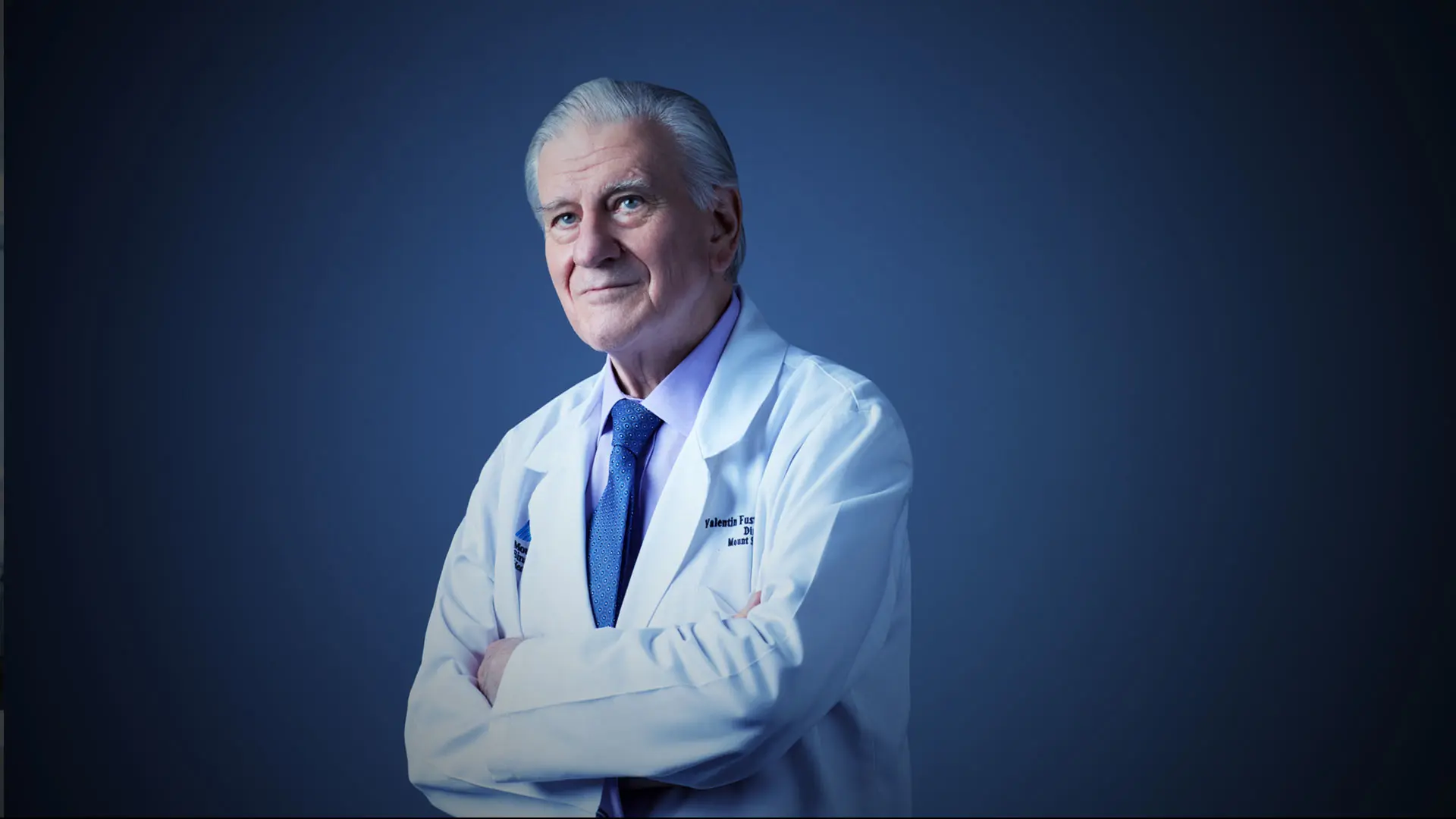The three-drug cardiovascular polypill, developed and studied under the leadership of Valentin Fuster, MD, PhD, in July 2023 was included by the World Health Organization (WHO) in its List of Essential Medicines. The medication includes three active ingredients (acetylsalicylic acid, ramipril, and atorvastatin) and is effective in preventing secondary adverse cardiovascular events in people who have previously had a heart attack, reducing cardiovascular mortality by 33 percent in this population.
Those were findings from the SECURE trial led by Dr. Fuster, President of Mount Sinai Fuster Heart Hospital, Physician-in-Chief of The Mount Sinai Hospital, and General Director of the Spanish National Centre for Cardiovascular Research (CNIC), which developed the medication with the pharmaceutical company Ferrer. The results were published in August 2022 in The New England Journal of Medicine.
“The SECURE results showed for the first time that the cardiovascular polypill that we helped develop led to clinically relevant reductions in recurrent cardiovascular events in patients who had suffered a myocardial infarction,” Dr. Fuster says. “Adherence to treatment after an acute myocardial infarction is essential for effective secondary prevention. This cardiovascular polypill, as a strategy that combines three of the baseline treatments for these patients, has proven its value, because increased adherence means that patients are being treated for longer and, as a result, have a lower risk of cardiovascular events.”
The Essential Medicines List contains medicines that the WHO considers to be the minimum requirements for any health care system. It is updated every two years, and is internationally recognized, helping to prioritize effective and affordable medicines. As stated in the WHO report, “Essential medicines are those that satisfy the priority health care needs of a population. They are intended to be available in functioning health systems at all times, in appropriate dosage forms, of assured quality, and at prices individuals and health systems can afford.”
“Adherence to treatment after an acute myocardial infarction is essential for effective secondary prevention. This cardiovascular polypill, as a strategy that combines three of the baseline treatments for these patients, has proven its value.”
Valentin Fuster, MD, PhD
The concept of a polypill for cardiovascular disease prevention was proposed in 2003 and widely debated among experts, with some arguing that it could reduce heart disease at a population level and others arguing that patients could wrongly consider it as a substitute for healthy lifestyles. In 2007, the potential value of applying the polypill strategy in high-risk patients was recognized by the WHO and the World Heart Federation, and Dr. Fuster authored a call to action in Nature Clinical Practice Cardiovascular Medicine, “A polypill for secondary prevention: time to move from intellectual debate to action.”
Scientists at the CNIC, in partnership with Ferrer laboratories, developed a polypill and have conducted a range of studies over the intervening years, including the groundbreaking SECURE trial. The polypill is marketed under the brand names Trinomia®, Sincronium®, and Iltria®, depending on the country, and contains aspirin (100 mg), the angiotensin-converting enzyme inhibitor ramipril (2.5, 5, or 10 mg), and atorvastatin (20 or 40 mg). It is the only polypill designed exclusively for patients who have experienced a cardiovascular event that is commercially available in 25 countries, and the feasibility of extending its distribution to additional territories, including the United States, is under analysis.
“Since our groundbreaking study was published, we have seen an increase in polypill usage across the world, and we are looking forward to having this medicine available in the United States and the rest of the countries where it is not available yet,” Dr. Fuster says. “This cardiovascular polypill could become an integral part of global strategies to prevent cardiovascular events in patients who have suffered a heart attack and who are currently already being treated with separate mono-components. This approach has the potential to reduce the risk of recurrent disease and cardiovascular death.”
An interview on the polypill with Valentin Fuster, MD, PhD, at the European Society of Cardiology Congress.
